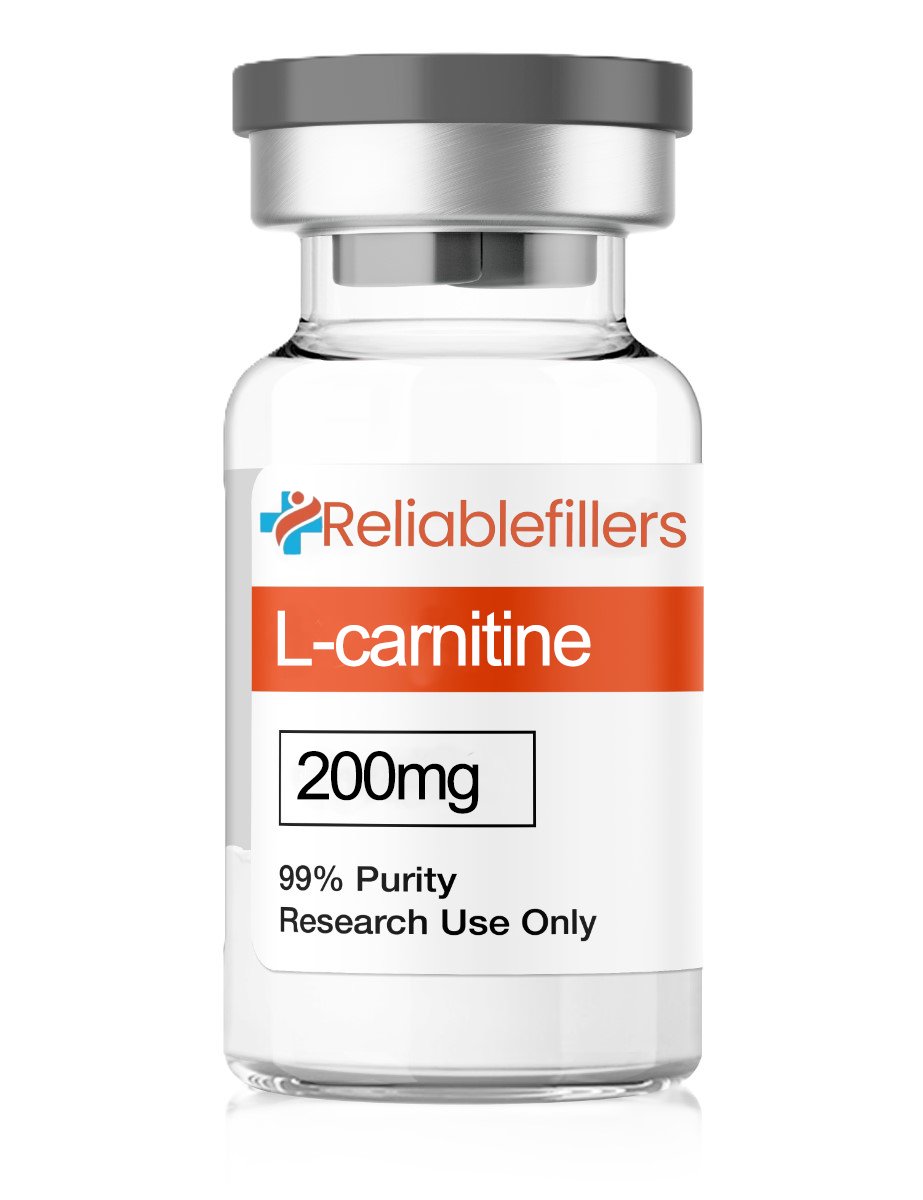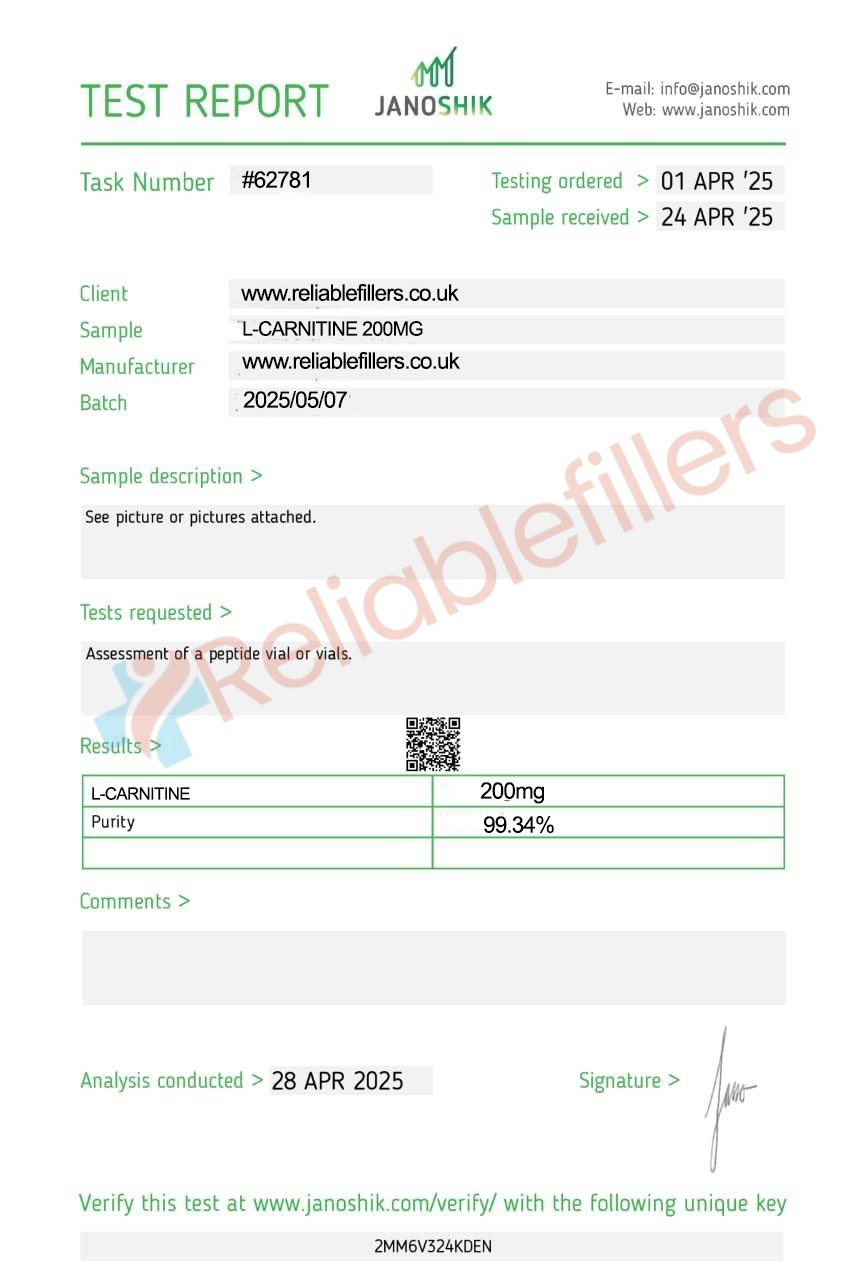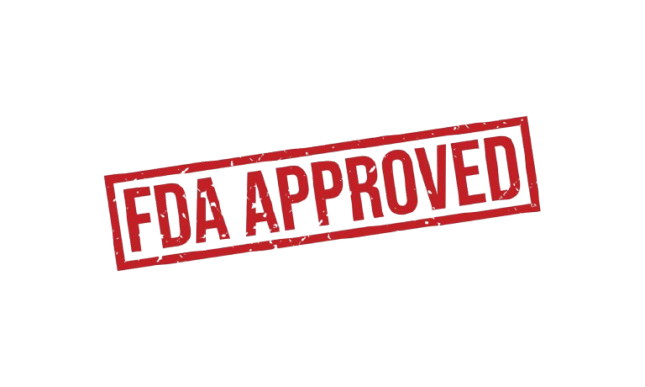L-carnitine 200mg
How does injectable L-carnitine work?
Injectable L-carnitine enters the bloodstream directly, bypassing the digestive tract. This results in significantly higher bioavailability – commonly reported at 98–100%, compared to only 10–15% for the oral form. This difference has significant implications for studies requiring rapid onset of action or stable plasma levels.
In addition, the injectable form avoids the formation of undesirable metabolites such as TMA and TMAO, which are formed in the intestines after oral administration and are associated with increased cardiovascular risk.
From a mechanism perspective, the function remains identical – injected L-carnitine ensures the transfer of fatty acids across the mitochondrial membrane, where they are converted into ATP as the main source of cellular energy.
Researched effects and interesting facts
- Energy supply (β-oxidation): L-carnitine allows fatty acids to enter the mitochondria, where they are converted into energy.
- Increased physical performance: Some studies have observed improved endurance, delayed fatigue, and more efficient use of fat instead of glycogen.
- Regeneration: Reducing oxidative stress and muscle fiber damage can accelerate recovery from exercise.
- Testosterone and androgen receptors: Research suggests that L-carnitine may increase the expression of androgen receptors in muscle tissues, which may increase the body’s response to anabolic stimuli.
- Neuroprotective effects: Experiments are investigating its effect on mitochondrial function in brain cells, which is related to memory, mood, and resistance to neurodegeneration.
Dosage in studies
- Dosage: 500 – 2000 mg daily
- Form: intramuscular (im) or subcutaneous (sc) injection
- Frequency: 1–2 times daily depending on the study objective
- Duration: 4–6 weeks or longer research protocols
Possible side effects (injectable form)
- Irritation, redness, or itching at the injection site
- Burning sensation upon injection (depending on rate of administration and concentration)
- Rarely nausea or increased heart rate
Resources
- Liu, J. et al. (2004). L-Carnitine Supplementation in Recovery from Exercise-Induced Muscle Damage
- Brass, EP (2000). Carnitine metabolism and its regulation in microorganisms and mammals
- Hoppel, CL (2003). The role of carnitine in normal and altered fatty acid metabolism
- Kraemer, WJ et al. (2006). Androgen receptor regulation by L-carnitine in resistance training
- Evans, AM et al. (2009). Effects of L-carnitine supplementation on physical performance





Reviews
There are no reviews yet.